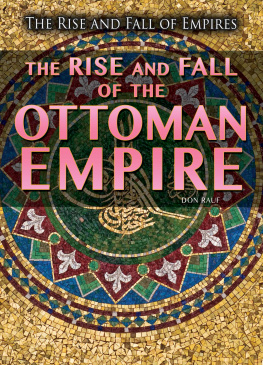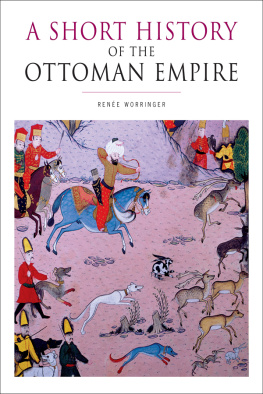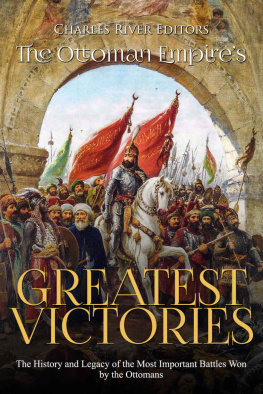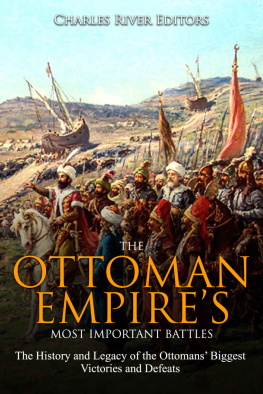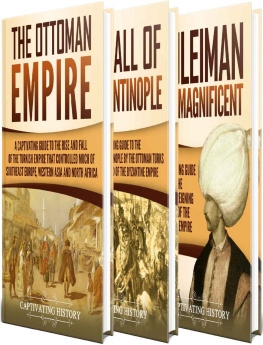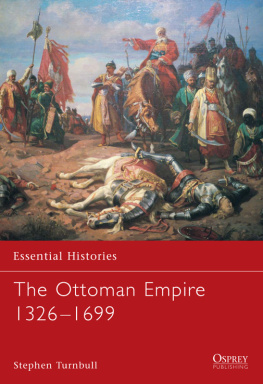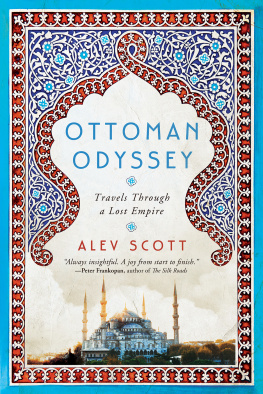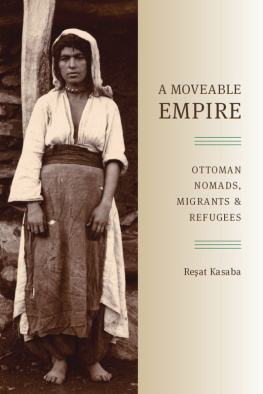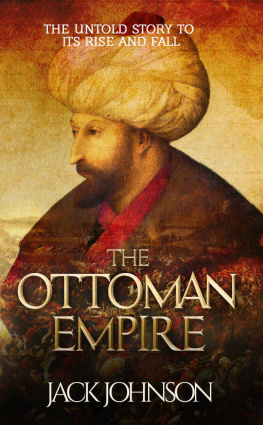[AuthoritiesGeneral: Von Hammer Purgstall, History of the Ottoman Empire (in German); Creasy, History of the Ottoman Turks; Larpent, History of the Turkish Empire; Lamartine, History of Turkey; Cantemir, History of the Growth and Decay of the Ottoman Empire; Morris, The Turkish Empire Lane-Poole. The Story of Turkey; Garnett, Turkish Life in Town and Country; Grosvenor, Constantinople."Special: Vambery, The Turkish Races."]
Constantinople, the Turkish capital, the mysterious, ancient, ever-flourishing city, sacred alike to Christian and Mahometan, stands in its wondrous beauty upon European shores; yet Turkey is an Asiatic State. Her story belongs to Asia, the world of dreamy fancy and lurid legend, not of sober fact and accurately dated history. Hence one can speak of Turkey only after the fashion of her own clime, repeating the poetic fantasies with which her writers have adorned her early days, enjoying the beauty and noting the symbolism of each new tale, but with not too deep a faith in its mathematical veracity.
The story deals first with Ertoghrul, whose name means the right-hearted man; and the hero who succeeds him is Osman, the limb-breaker. The significant titles indicate the chief qualities for which the Turks take pride in their far ancestors. Those founders of the race were sturdy warriors and right-hearted men of honor.
This is certainly not the general conception of the Turks, held by the peoples of the West; but if we are to appreciate or understand at all the marvellous rise of this fierce yet romantic race, we must begin by casting aside the false ideas which many of us have acquired through dwelling only on the evil side of the character of a fallen foe. Let us start on the basis of a few plain facts. Western ignorance and indeed indifference as regards things Asiatic, are so dense that we blunder over the very name of this people and of their land. To speak of the Turkish Empire at Constantinople is as mistaken as to speak of the Caucasian Empire at London. Turk is really a general name covering all the nations and tribes which once spread over northern Asia and most of Russia. The name, to a gentleman of Constantinople, suggests something of wildness and barbarism. His own nation is a special branch of the Turkish race, the one that has risen above all others in intellect, in civilization and fame. The members of this noteworthy people are called the Osmanli, for they are the followers of Osman, or as the West has carelessly spelled it, Othman. Their domain, by a still further perversion of sound, we entitle the Ottoman Empire.
Turn now to the tale of its beginning. The first leader, Ertoghrul, steps into the light of romance as a hero of about the middle of the thirteenth century, the central figure of a striking and characteristic episode. At the time of his appearance the great religious crusades were just at an end, and if they had disrupted European kingdoms, far more had they shaken and shattered the East. The vast empire of the Mahometan Arabs had fallen into fragments; and Western Asia, the region of Persia, Syria, and Asia Minor, the birthplace of civilization, was occupied by a confusion of many peoples, the most numerous among them being perhaps of Turkish race, descendants of the many bands of Turks which for centuries had wandered down from the wild and barren north-east. One tribe of these Turks, the Seljuks, had even founded a sort of empire of their own in Asia Minor. Their rulers or Sultans had established their capital at Iconium and had fought valiantly against the Crusaders. But their power had wasted to a shadow, they were staggering under the assaults of other invading hordes.
Into this world of tumult and confusion there entered another Turkish people, as yet a tribe without fixed name, the Osmanli of the future. They were khazak or cossacks, which means wanderers,nomads, owners of vast flocks and herds with which they roamed over the wide grassy wildernesses of the north. Following in the footsteps of endless earlier tribes, they grew numerous and strong and began to push their way southward, seeking ever pleasanter, warmer dwelling-lands with richer pasturage. They had crossed Armenia, taking uncounted years, perhaps generations, in their advance. They were moving down the Upper Euphrates River into Syria, when their chief was drowned in the stream, leaving part of his inheritance to a young son, Ertoghrul, too youthful, thought his wild followers, to give them protection or to deserve obedience. So the tribe scattered in all directions, as fancy moved them. Only a remnant of the most loyal clung to Ertoghrul, leaving him a band of four hundred and forty-four horsemen, a fitting, symbolic number of faithful and valiant clansmen.
In his wanderings the new chief had heard of the great Turkish Sultan at Iconium, and with this lord he resolved to seek shelter and service for his people. Journeying through the wilds of Asia Minor, he and his followers heard one day a furious clash of arms. Watching from a hill, they saw two armies in the shock of battle, and the weaker side, though fighting desperately, began to give way before overwhelming numbers. With characteristic chivalry and impetuosity, Ertoghrul stayed not to learn the causes of the quarrel, but crying to his band that they must restore the uneven balance, he led them in a wild charge into the affray. Small as the troop was, the shock of its unexpected appearance and attack decided the fortune of the day. The enemy fled, and Ertoghrul, showered with the thanks and praise of those whom he had rescued, found that their general was the very ruler he was seeking,the Sultan of Iconium.
It may be imagined how eagerly the Sultan accepted the adherence of these proven veterans. He conferred on them the lordship of a province in northern Asia Minor, centering about the city of Saguta, and charged them to defend the land against the ever-recurring invasions of the Tartar hordes. Ertoghrul ruled wisely, and gathered round him a strong army from the inhabitants of the district and from the many adventurers, chiefly of Turkish race, who joined his standard. He soon found that he was really an independent ruler, who must rely on his own resources. Wandering bands like his own were constantly appearing to attack him. The Sultans authority was only a shadow. Each warlike Emir (lord) of a city fought against the others, and the only law was that of the strongest.
By that law Ertoghrul proved his right to rule. Very gradually he made himself assured master of the territories that had been granted him. In a battle fought against the forces of the Greek cities bordering the coast of the Black Sea, he originated a new style of tactics which remained for centuries the favorite mode of attack among his people. He repeatedly sent his light troops against the enemy, not to lock with them in death-grapple, but to harass, bewilder and exhaust the foe. Then seizing the vital moment, the chieftain swept his lighter forces aside and charged with his own veterans, fresh, fierce, and eager to prove their right to the proud supremacy they held.



